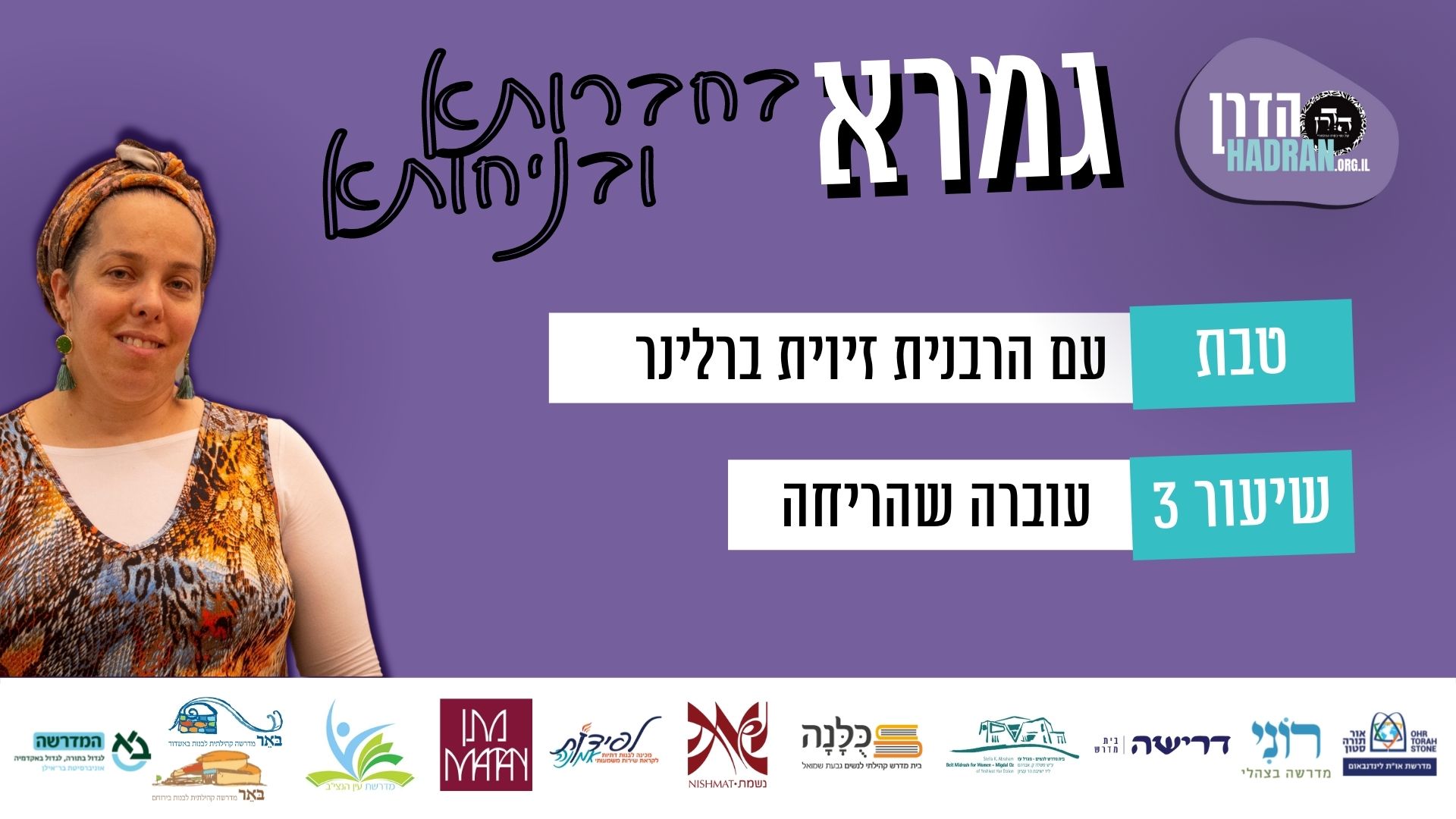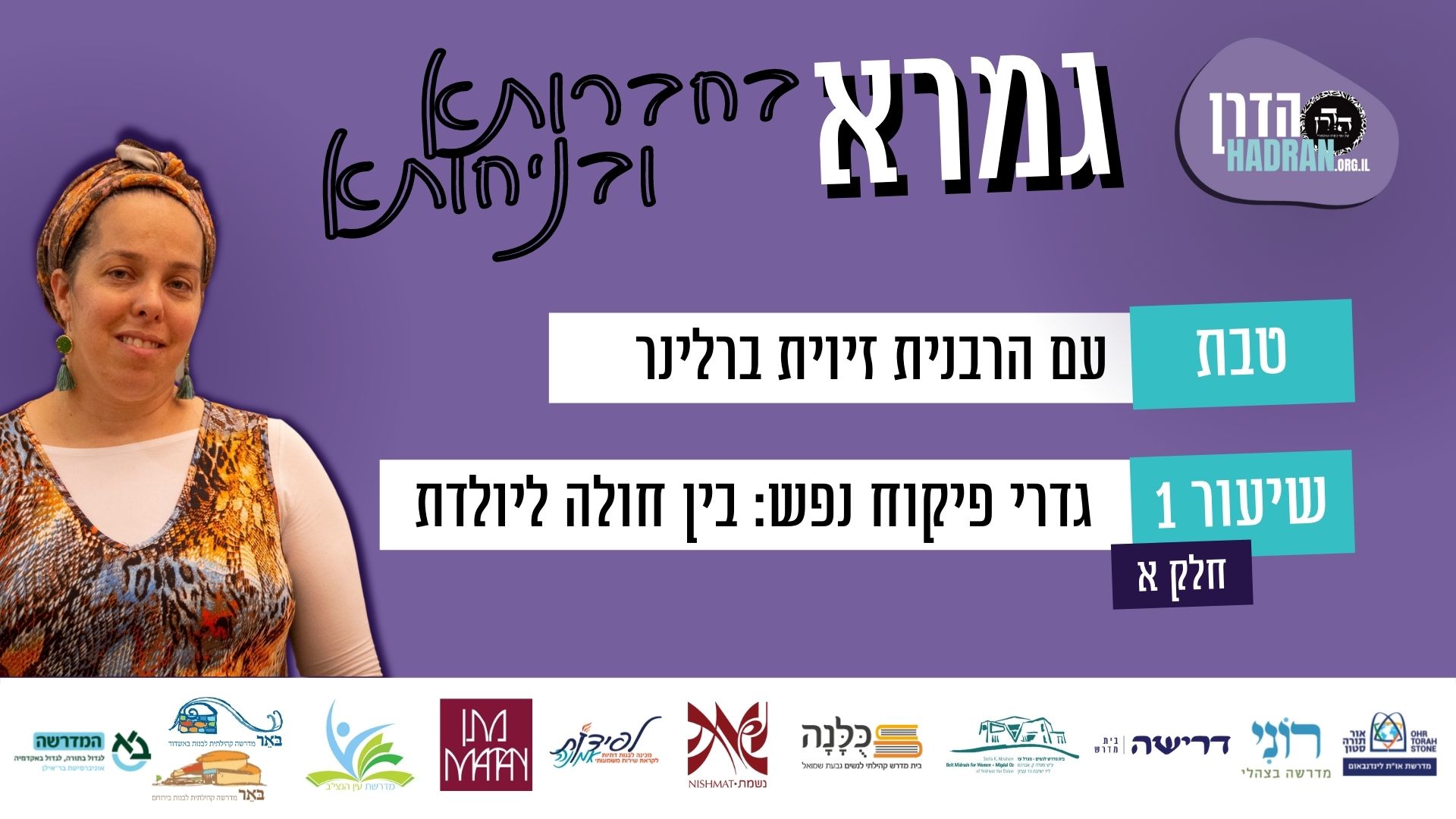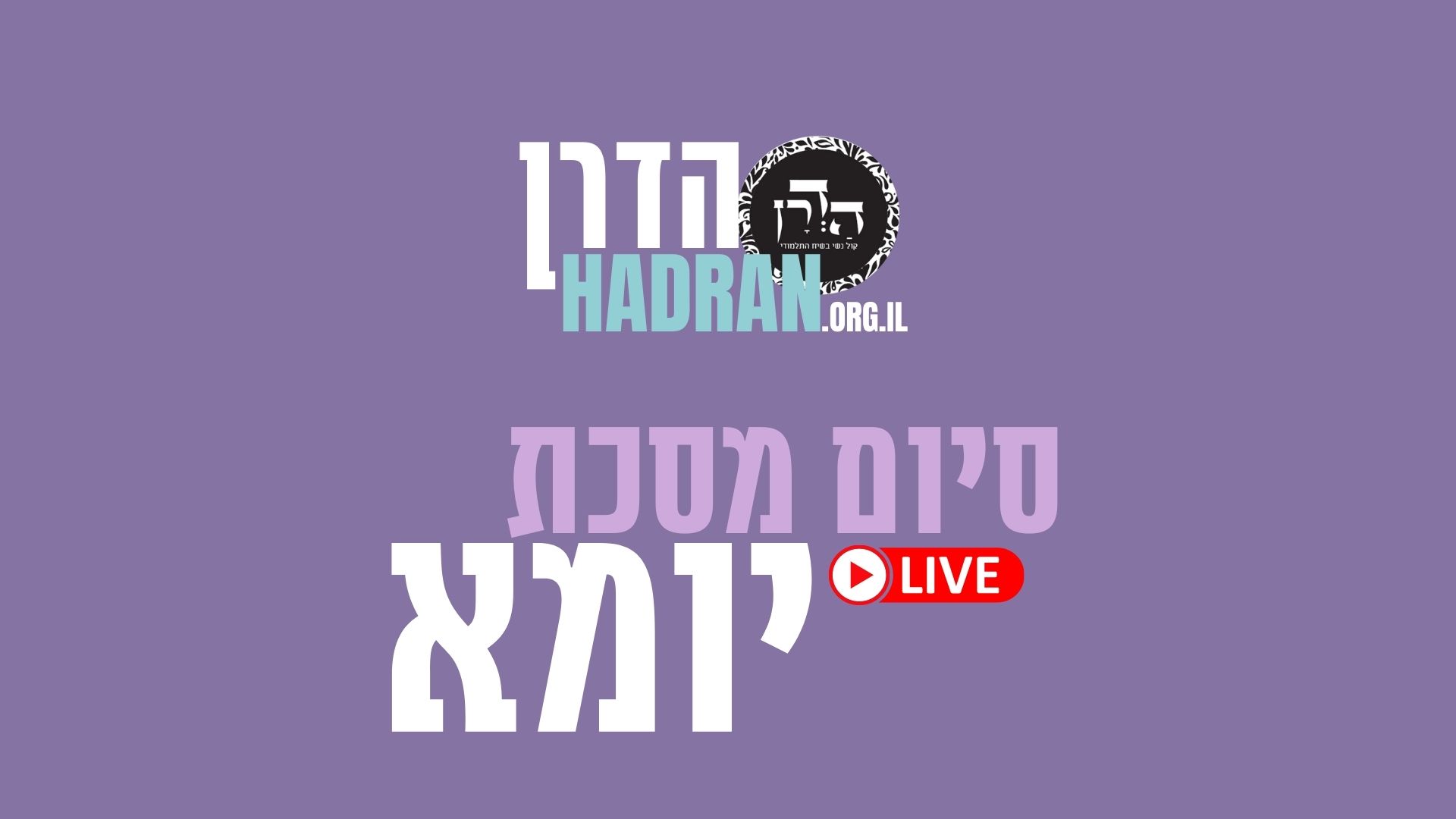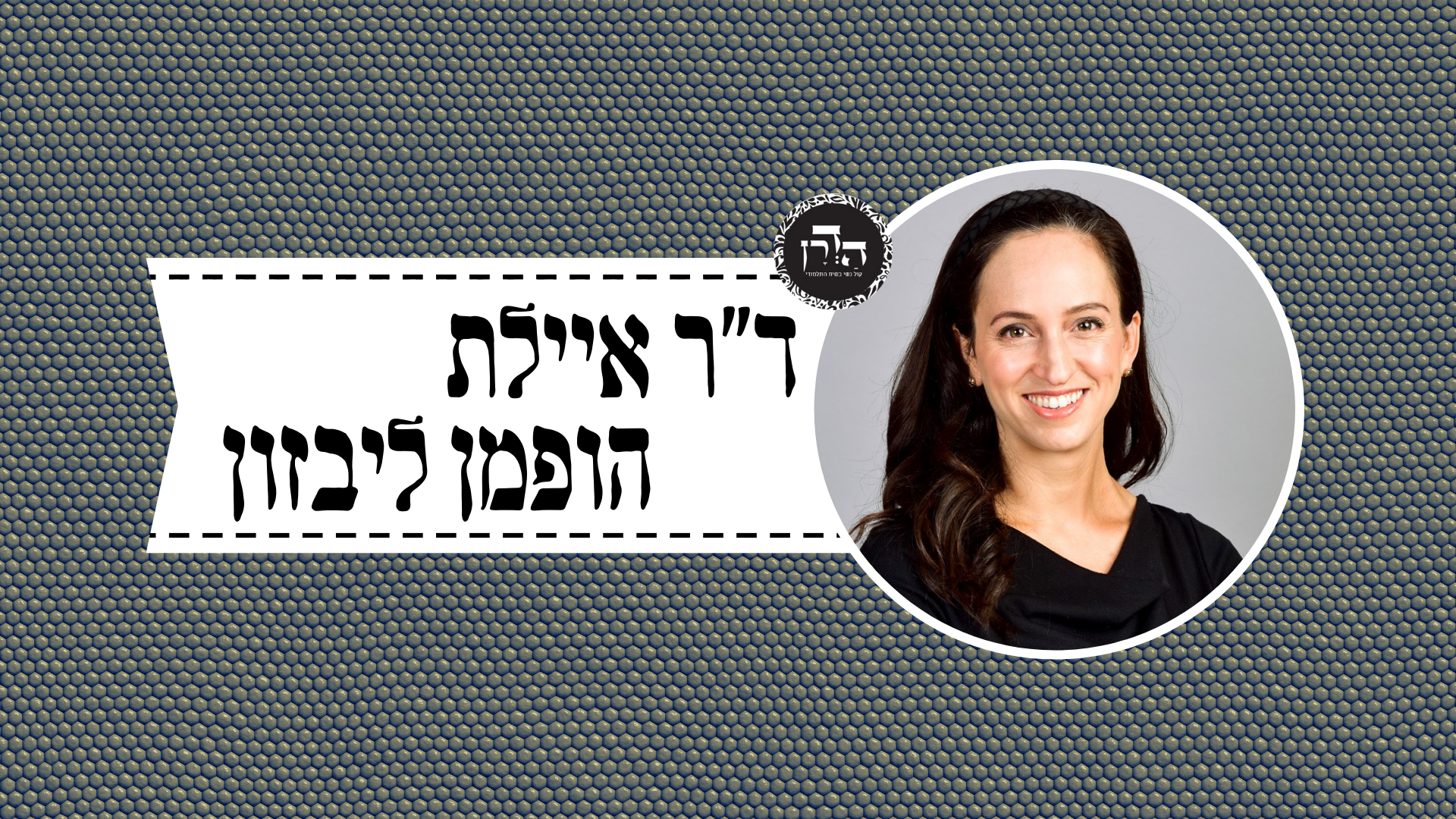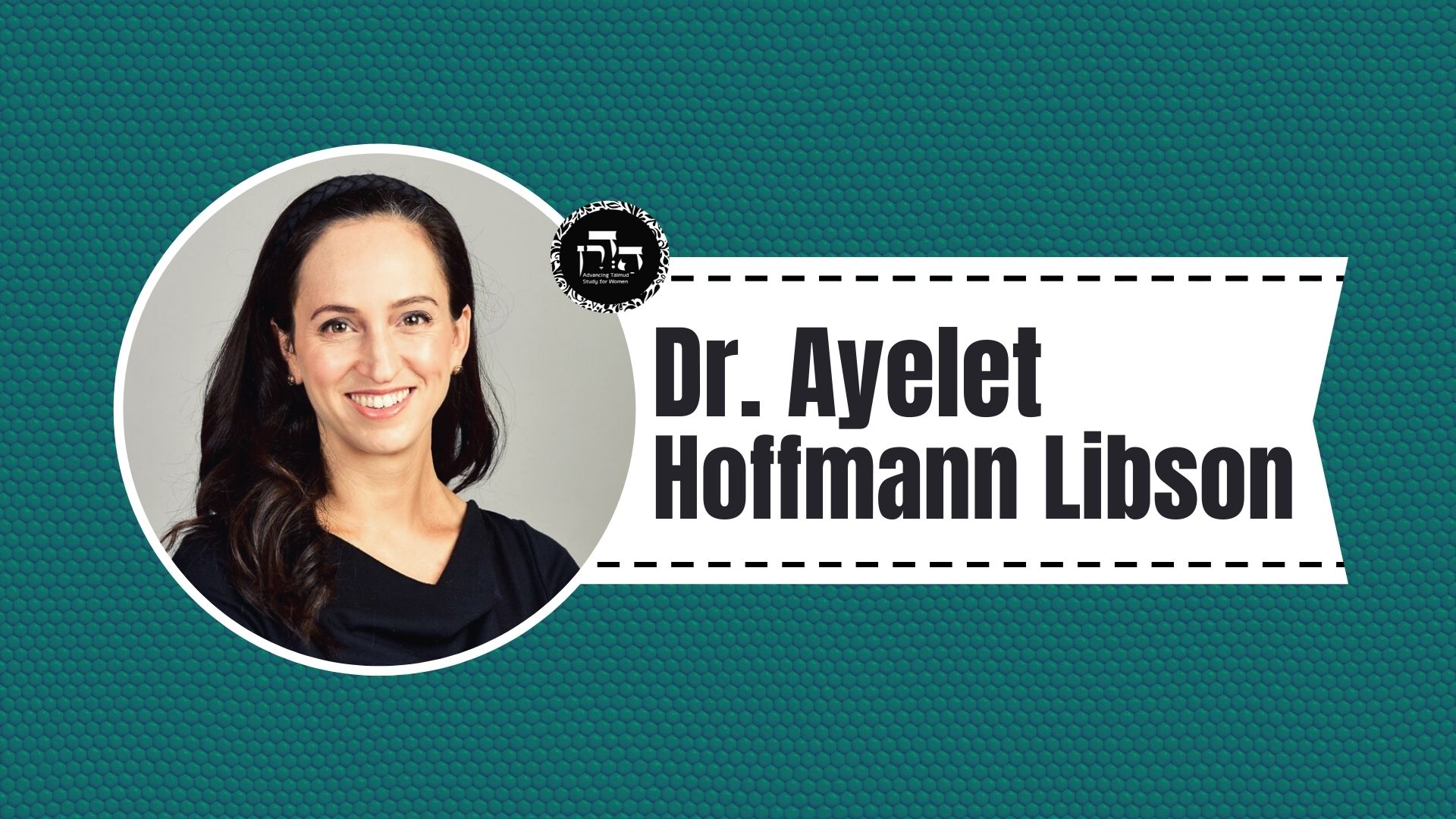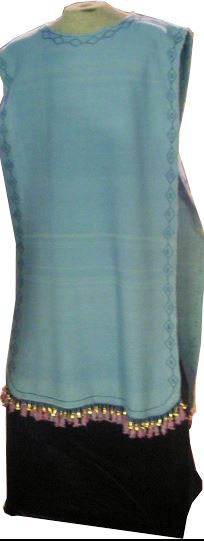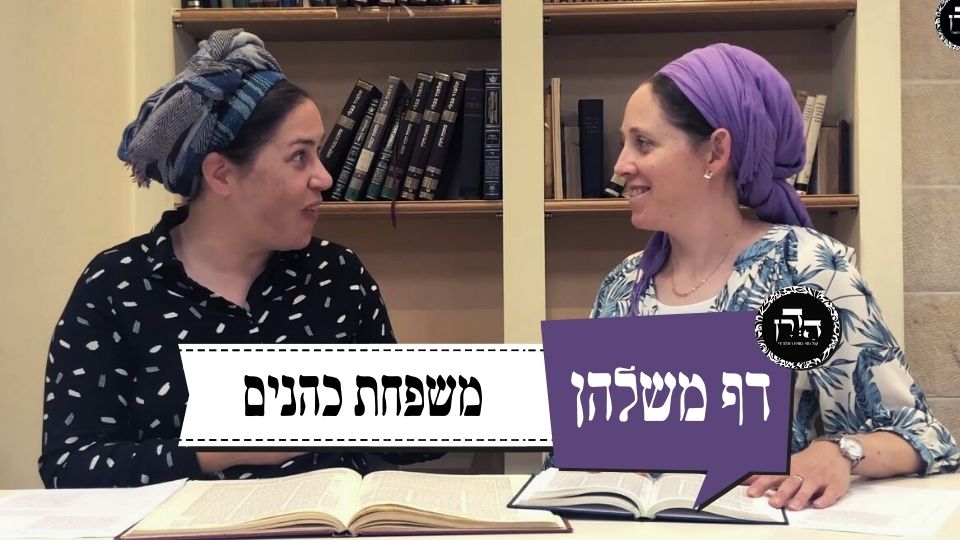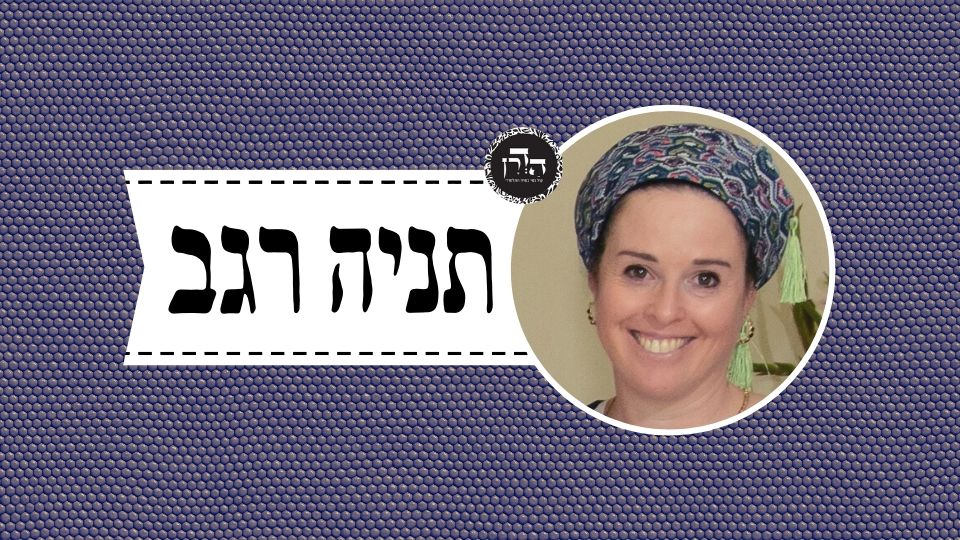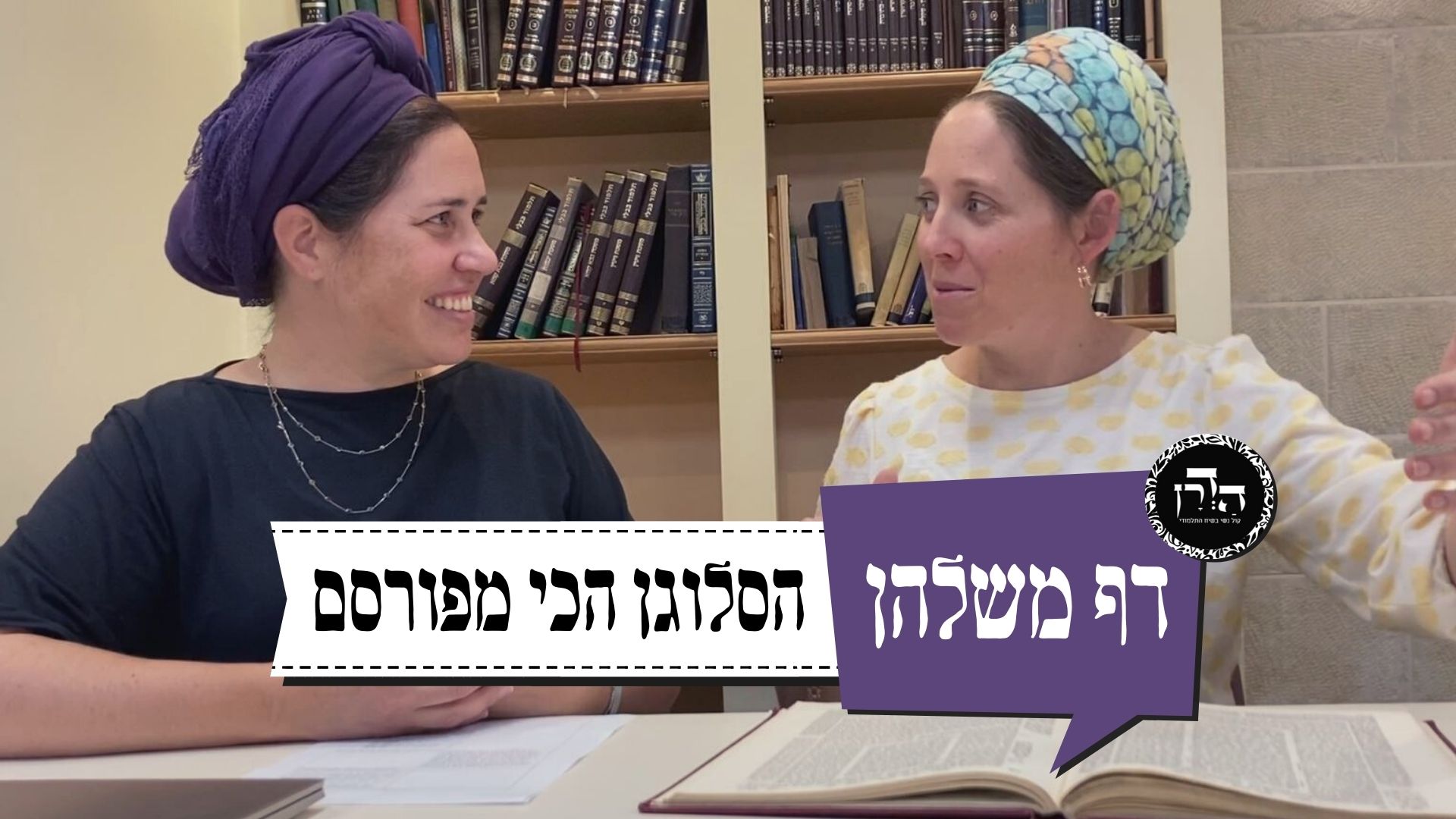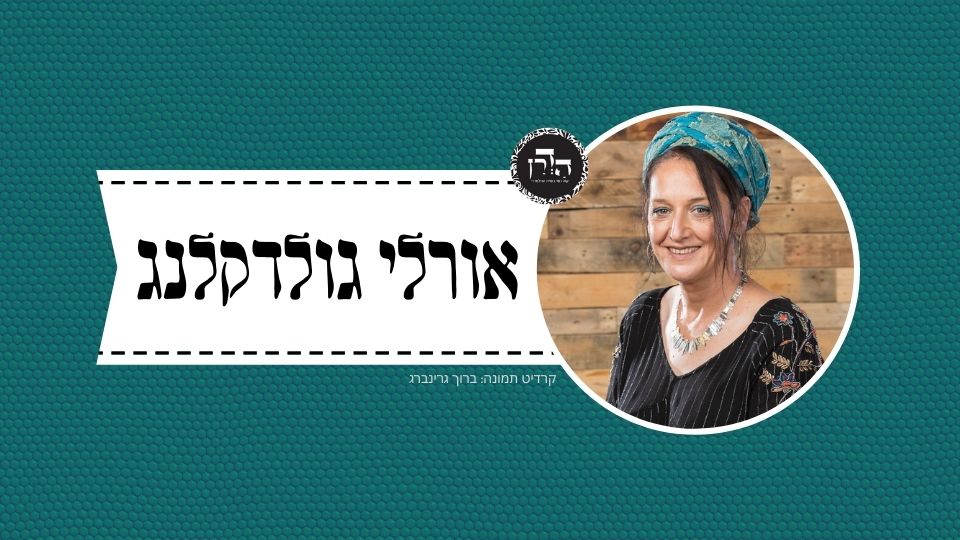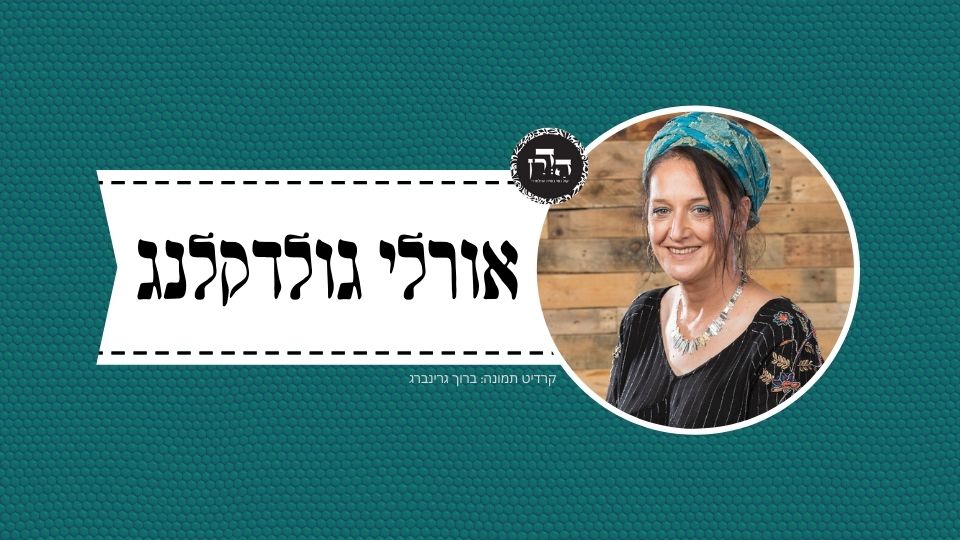יומא יא
כׇּל הַשְּׁעָרִים שֶׁהָיוּ שָׁם לֹא הָיָה לָהֶם מְזוּזָה, חוּץ מִשַּׁעַר נִיקָנוֹר, שֶׁלִּפְנִים מִמֶּנּוּ לִשְׁכַּת פַּרְהֶדְרִין.
All the gates that were there on the east side of the Temple courtyard did not have a mezuza except for the Gate of Nicanor, as in the courtyard just inside the gate was the Chamber of Parhedrin, in which there is an obligation to affix a mezuza. Therefore, a mezuza was affixed to the gate as well.
לֵימָא רַבָּנַן הִיא וְלָא רַבִּי יְהוּדָה? דְּאִי רַבִּי יְהוּדָה, הִיא גּוּפַהּ גְּזֵירָה, וַאֲנַן נֵיקוּם וְנִגְזוֹר גְּזֵירָה לִגְזֵירָה? אֲפִילּוּ תֵּימָא רַבִּי יְהוּדָה, כּוּלַּהּ חֲדָא גְּזֵירָה הִיא.
Let us say that the baraita is in accordance with the opinion of the Rabbis and not in accordance with the opinion of Rabbi Yehuda, as, if it were in accordance with the opinion of Rabbi Yehuda, a difficulty arises. The principle is that decrees are issued only to prevent violation of a Torah prohibition. The fact that a mezuza was affixed to the Parhedrin chamber itself is due to a rabbinic decree, and will we then proceed to issue a decree to affix a mezuza on the gate before the chamber in order to prevent violation of the existing decree? The Gemara rejects this reasoning: Even if you say that the baraita is in accordance with the opinion of Rabbi Yehuda, it is not difficult, as the entire obligation to affix the mezuza on both the chamber and the gate is the result of a single decree.
תָּנוּ רַבָּנַן: ״בִּשְׁעָרֶיךָ״ — אֶחָד שַׁעֲרֵי בָתִּים וְאֶחָד שַׁעֲרֵי חֲצֵירוֹת וְאֶחָד שַׁעֲרֵי מְדִינוֹת וְאֶחָד שַׁעֲרֵי עֲיָירוֹת יֵשׁ בָּהֶן חוֹבַת מִצְוָה לַמָּקוֹם, מִשּׁוּם שֶׁנֶּאֱמַר: ״וּכְתַבְתָּם עַל מְזוּזוֹת בֵּיתֶךָ וּבִשְׁעָרֶיךָ״.
§ Apropos the mezuza in the High Priest’s chamber, the Gemara discusses other halakhot of mezuza. The Sages taught with regard to the verse: “And you will write them upon the doorposts of your houses and upon your gates” (Deuteronomy 6:9): With regard to the gates of houses, and the gates of courtyards, and the gates of cities, and the gates of towns, all of them are obligated in the mitzva of mezuza in that place, due to the fact that it is stated: “And you will write them upon the doorposts of your houses and upon your gates.”
אֲמַר לֵיהּ אַבָּיֵי לְרַב סָפְרָא: הָנֵי אֲבוּלֵּי דְמָחוֹזָא מַאי טַעְמָא לָא עֲבַדוּ לְהוּ רַבָּנַן מְזוּזָה? אֲמַר לֵיהּ: הָנְהוּ חִזּוּק לְאַקְרָא דְכוּבֵי הוּא דַּעֲבִידִי. אָמַר לֵיהּ: וְאַקְרָא דְכוּבֵי גּוּפַהּ תִּבְעֵי מְזוּזָה, דְּהָא אִית בַּהּ דִּירָה לְשׁוֹמֵר בֵּית הָאֲסוּרִין, דְּהָא תַּנְיָא: בֵּית הַכְּנֶסֶת שֶׁיֵּשׁ בּוֹ בֵּית דִּירָה לְחַזַּן הַכְּנֶסֶת חַיֶּיבֶת בִּמְזוּזָה!
Abaye said to Rav Safra: If there is an obligation to affix a mezuza on city gates, with regard to those city gates [abbulei] of Meḥoza, a city with a Jewish majority, what is the reason that the Sages did not affix a mezuza on them? Rav Safra said to him: Those gates are not the city gates. They are made as reinforcement to the fort [akra] of turrets above the gate, and therefore no mezuza is required. Abaye said to him: And shouldn’t the fort of turrets itself require a mezuza, since there is a residence for the prison guard in the fort? As, wasn’t a similar case taught in a baraita: A synagogue in which there is a residence for the synagogue attendant requires a mezuza? Although no one lives in the synagogue itself, since the attendant lives in an adjacent room, the synagogue requires a mezuza.
אֶלָּא אָמַר אַבָּיֵי: מִשּׁוּם סַכָּנָה. דְּתַנְיָא: מְזוּזַת יָחִיד נִבְדֶּקֶת פַּעֲמַיִם בַּשָּׁבוּעַ, וְשֶׁל רַבִּים פַּעֲמַיִם בַּיּוֹבֵל.
Rather, Abaye said: The reason that no mezuza was affixed there was due to the danger involved. The gates of a city populated by Jews certainly require a mezuza; however, since gentiles live there as well, the danger is that the gentiles would suspect the Jews of witchcraft or espionage, as it was taught in a baraita: The mezuza belonging to an individual is examined twice every seven years to determine whether it was stolen or became disqualified. And in order to avoid excessive burden on the community, the mezuza belonging to the public is examined twice in a fifty-year Jubilee period.
וְאָמַר רַבִּי יְהוּדָה: מַעֲשֶׂה בְּאַרְטָבִין אֶחָד שֶׁהָיָה בּוֹדֵק מְזוּזוֹת בַּשּׁוּק הָעֶלְיוֹן שֶׁל צִפּוֹרִי, וּמְצָאוֹ קַסְדּוֹר אֶחָד וְנָטַל מִמֶּנּוּ אֶלֶף זוּז. וְהָאָמַר רַבִּי אֶלְעָזָר: שְׁלוּחֵי מִצְוָה אֵין נִיזּוֹקִין? הֵיכָא דִּקְבִיעַ הֶיזֵּקָא, שָׁאנֵי. דִּכְתִיב: ״וַיֹּאמֶר שְׁמוּאֵל אֵיךְ אֵלֵךְ וְשָׁמַע שָׁאוּל וַהֲרָגָנִי וַיֹּאמֶר ה׳ עֶגְלַת בָּקָר תִּקַּח בְּיָדֶךָ וְאָמַרְתָּ לִזְבּוֹחַ לַה׳ בָּאתִי״.
And Rabbi Yehuda said: There was an incident involving an examiner [artavin], who was examining mezuzot in the upper marketplace of Tzippori during a period when decrees were issued against the Jewish people, and a Roman official [kasdor] found him and collected a fine of one thousand zuz from him. The Gemara raises a difficulty: But didn’t Rabbi Elazar say that those on the path to perform a mitzva are not susceptible to harm throughout the process of performing the mitzva? The Gemara responds: In a place where danger is permanent it is different, as one should not rely on a miracle, as it is written with regard to God’s command to Samuel to anoint David as king in place of Saul: “And Samuel said: How will I go, and Saul will hear and kill me; and God said: Take in your hand a calf and say: I have come to offer a sacrifice to God” (I Samuel 16:2). Even when God Himself issues the command, there is concern with regard to a clear and present danger.
תָּנֵי רַב כָּהֲנָא קַמֵּיהּ דְּרַב יְהוּדָה: בֵּית הַתֶּבֶן וּבֵית הַבָּקָר וּבֵית הָעֵצִים וּבֵית הָאוֹצָרוֹת פְּטוּרִים מִן הַמְּזוּזָה, מִפְּנֵי שֶׁהַנָּשִׁים נְאוֹתוֹת בָּהֶן. וּמַאי ״נְאוֹתוֹת״? רוֹחֲצוֹת. אֲמַר לֵיהּ רַב יְהוּדָה: טַעְמָא דְּרוֹחֲצוֹת, הָא סְתָמָא — חַיָּיבִין? וְהָתַנְיָא: רֶפֶת בָּקָר פְּטוּרָה מִן הַמְּזוּזָה!
§ Rav Kahana taught a baraita before Rav Yehuda: A storehouse for hay, and a cattle barn, and a woodshed, and a storehouse are exempt from the obligation of mezuza, due to the fact that the women make use of them. And what is the meaning of the term: Make use? It means that the women bathe in them. Since women bathe there unclothed, it is inappropriate to affix a mezuza there. Rabbi Yehuda said to him: The reason that there is no requirement to affix a mezuza there is due to the fact that women bathe there; one can learn by inference that standard buildings of this kind, where women do not bathe, are obligated in the mitzva of affixing a mezuza there. But wasn’t it taught in a different baraita: A cattle barn is exempt from the obligation of mezuza, unrelated to whether or not women bathe there?
אֶלָּא: מַאי ״נְאוֹתוֹת״ — מִתְקַשְּׁטוֹת. וְהָכִי קָתָנֵי: אַף עַל פִּי שֶׁהַנָּשִׁים מִתְקַשְּׁטוֹת בָּהֶן, פְּטוּרִין. אֲמַר לֵיהּ רַב כָּהֲנָא: וְשֶׁהַנָּשִׁים מִתְקַשְּׁטוֹת בָּהֶן פְּטוּרִין, וְהָתַנְיָא: רֶפֶת בָּקָר פְּטוּרָה מִן הַמְּזוּזָה, וְשֶׁהַנָּשִׁים מִתְקַשְּׁטוֹת בָּהּ חַיֶּיבֶת בִּמְזוּזָה!
Rather, the term should be understood otherwise. What is the meaning of the term: Make use? It means that the women adorn themselves there, and this is what the baraita is teaching: Although these structures are solid and clean to the extent that the women adorn themselves in them, they are exempt from the obligation of mezuza since they are not residences. Rav Kahana said to him: Are you saying that structures where the women adorn themselves are exempt from the mitzva of mezuza? But wasn’t it taught in a different baraita: A cattle stable is exempt from the obligation of mezuza, and a barn in which women adorn themselves is obligated in the mitzva of mezuza?
אֶלָּא מַאי אִית לָךְ לְמֵימַר, מִתְקַשְּׁטוֹת תַּנָּאֵי הִיא? לְדִידִי נָמֵי סְתָמָא תַּנָּאֵי הִיא. דְּתַנְיָא: ״בֵּיתֶךָ״ — בֵּיתְךָ הַמְיוּחָד לָךְ, פְּרָט לְבֵית הַתֶּבֶן וּלְבֵית הַבָּקָר וּלְבֵית הָעֵצִים וּלְבֵית הָאוֹצָרוֹת, שֶׁפְּטוּרִין מִן הַמְּזוּזָה, וְיֵשׁ מְחַיְּיבִין.
Rather, what have you to say, that with regard to the requirement of mezuza the status of places where women adorn themselves is subject to a dispute between tanna’im? Just as there are different opinions in that case, in my opinion, the status of standard cattle barns is also subject to a dispute between tanna’im, as it was taught in a baraita that it is written: Upon the doorposts of your house, meaning your house that is designated as a residence, to the exclusion of a storehouse for hay, and a cattle barn, and a woodshed, and a storehouse, which are exempt from the mitzva of mezuza, and some obligate these structures in the mitzva of mezuza. Apparently, the Rabbis dispute the requirement of affixing a mezuza in a standard stable.
בֶּאֱמֶת אָמְרוּ, בֵּית הַכִּסֵּא וּבֵית הַבּוּרְסְקִי וּבֵית הַמֶּרְחָץ וּבֵית הַטְּבִילָה, וְשֶׁהַנָּשִׁים נְאוֹתוֹת בָּהֶן פְּטוּרִים מִן הַמְּזוּזָה. רַב כָּהֲנָא מְתָרֵץ לְטַעְמֵיהּ וְרַב יְהוּדָה מְתָרֵץ לְטַעְמֵיהּ.
Actually they said: There is a legal tradition that a building housing a bathroom, and a building housing a tannery [burseki], and a bathhouse, and a building housing a ritual bath for immersion, and any places of which women make use are exempt from the obligation of mezuza. This baraita is inconsistent with the opinions of both Rav Kahana and Rav Yehuda. Therefore, Rav Kahana interprets the baraita according to his line of reasoning, and Rav Yehuda interprets it according to his line of reasoning.
רַב כָּהֲנָא מְתָרֵץ לְטַעְמֵיהּ: ״בֵּיתֶךָ״ — בֵּיתְךָ הַמְיוּחָד לָךְ, פְּרָט לְבֵית הַתֶּבֶן וּלְבֵית הַבָּקָר וּלְבֵית הָעֵצִים וּלְבֵית הָאוֹצָרוֹת, שֶׁפְּטוּרִים מִן הַמְּזוּזָה בִּסְתָם. וְיֵשׁ שֶׁמְּחַיְּיבִים בִּסְתָם. בֶּאֱמֶת אָמְרוּ: בֵּית הַכִּסֵּא וּבֵית הַבּוּרְסְקִי וּבֵית הַמֶּרְחָץ וּבֵית הַטְּבִילָה וְשֶׁהַנָּשִׁים נְאוֹתוֹת בָּהֶן, וּמַאי ״נְאוֹתוֹת״ — רוֹחֲצוֹת, פְּטוּרִין מִן הַמְּזוּזָה.
Rav Kahana interprets it according to his line of reasoning: Your house means your house that is designated for your residence, to the exclusion of a storehouse for hay, and a cattle barn, and a woodshed, and a storehouse, which are exempt from the mitzva of mezuza in a case where their use is standard and they are not used for bathing or other immodest acts. And some obligate these structures in the mitzva of mezuza in a case where their use is standard. In truth they said the following with regard to a bathroom, and a tannery, and a bathhouse, and a ritual bath for immersion, and any places of which women make use; and what is the meaning of the term: Make use? It is that women bathe there. These places are exempt from the obligation of mezuza.
אִי הָכִי, הַיְינוּ מֶרְחָץ! אַשְׁמְעִינַן מֶרְחָץ דְּרַבִּים וְאַשְׁמְעִינַן מֶרְחָץ דְּיָחִיד. דְּסָלְקָא דַּעְתָּךְ אָמֵינָא: מֶרְחָץ דְּרַבִּים דִּנְפִישׁ זוּהֲמֵיהּ, אֲבָל מֶרְחָץ דְּיָחִיד דְּלָא נְפִישׁ זוּהֲמֵיהּ — אֵימָא לִיחַיַּיב בִּמְזוּזָה, קָא מַשְׁמַע לַן.
The Gemara challenges this interpretation: If so, that make use in this context means bathe, this is identical to the bathhouse. Why would the baraita need to list both a bathhouse and a place where women bathe? The Gemara answers: The baraita teaches us the halakha with regard to the bathhouse of the public, and it teaches us the halakha with regard to the bathhouse of an individual. As it could enter your mind to say: A bathhouse of the public, whose filth is extensive, is exempt from mezuza; however, the bathhouse of an individual, whose filth is not extensive, as only women of that house bathe there, I would say it is obligated in the mitzva of affixing a mezuza. Therefore, the baraita teaches us that the bathhouse of an individual is also exempt.
וְרַב יְהוּדָה מְתָרֵץ לְטַעְמֵיהּ, הָכִי קָתָנֵי: ״בֵּיתֶךָ״ — בֵּיתְךָ הַמְיוּחָד לָךְ, פְּרָט לְבֵית הַתֶּבֶן וּבֵית הַבָּקָר וּבֵית הָעֵצִים וּבֵית הָאוֹצָרוֹת שֶׁפְּטוּרִין מִן הַמְּזוּזָה, אֲפִילּוּ מִתְקַשְּׁטוֹת, וְיֵשׁ מְחַיְּיבִין בְּמִתְקַשְּׁטוֹת, אֲבָל סְתָם דִּבְרֵי הַכֹּל פָּטוּר. בֶּאֱמֶת אָמְרוּ: בֵּית הַכִּסֵּא וּבֵית הַבּוּרְסְקִי וּבֵית הַמֶּרְחָץ וּבֵית הַטְּבִילָה, אַף עַל פִּי שֶׁהַנָּשִׁים מִתְקַשְּׁטוֹת בָּהֶן פְּטוּרִין מִן הַמְּזוּזָה, מִשּׁוּם דִּנְפִישׁ זוּהֲמֵיהּ.
And Rav Yehuda interprets the baraita according to his line of reasoning, and this is what it is teaching: Your house means your house that is designated for your residence, to the exclusion of a storehouse for hay, and a cattle barn, and a woodshed, and a storehouse, which are exempt from the mitzva of mezuza even in a case where women adorn themselves there. And some obligate these structures in the mitzva of mezuza in a case where women adorn themselves there. However, in a case where use of the building is standard, everyone agrees that these structures are exempt from the mitzva of mezuza. In truth they said that a bathroom, and a tannery, and a bathhouse, and a ritual bath for immersion, even though women adorn themselves there, are exempt from the obligation of mezuza, because its filth is extensive.
וּלְרַב יְהוּדָה סְתָמָא דִּבְרֵי הַכֹּל פָּטוּר, וְהָתַנְיָא: ״בִּשְׁעָרֶיךָ״ — אֶחָד שַׁעֲרֵי בָתִּים וְאֶחָד שַׁעֲרֵי חֲצֵירוֹת וְאֶחָד שַׁעֲרֵי מְדִינוֹת וְאֶחָד שַׁעֲרֵי עֲיָירוֹת, וְרֶפֶת וְלוּלִין וּמַתְבֵּן וְאוֹצְרוֹת יַיִן וְאוֹצְרוֹת שֶׁמֶן חַיָּיבִין בִּמְזוּזָה. יָכוֹל שֶׁאֲנִי מְרַבֶּה אַף
The Gemara asks: And according to Rav Yehuda, in cases where use of the building is standard, does everyone agree that a storehouse is exempt from the mitzva of mezuza? But wasn’t it taught in a baraita that it is written with regard to the mitzva to affix a mezuza: And upon your gates, meaning that with regard to the gates of houses, and the gates of courtyards, and the gates of cities, and the gates of towns, and a barn, and chicken coops, and a hay storehouse, and wine storehouses, and oil storehouses, all of them are obligated in the mitzva of mezuza? I might have thought that I include in the obligation of mezuza even
בֵּית שַׁעַר, אַכְסַדְרָה וּמִרְפֶּסֶת — תַּלְמוּד לוֹמַר: ״בַּיִת״, מָה בַּיִת מְיוּחָד לְדִירָה, יָצְאוּ אֵלּוּ שֶׁאֵין מְיוּחָדִין לְדִירָה.
a gatehouse, used to guard the entrance to a courtyard, a portico [akhsadra], an open porch, and a balcony serving as a corridor to several residences. Therefore, the verse states: House; just as a house is a place that is designated for residence and is obligated in the mitzva of mezuza, so too all similar structures are obligated. This is to the exclusion of those structures that are not designated for residence but for other purposes, which are exempt from the mitzva of mezuza.
יָכוֹל שֶׁאֲנִי מְרַבֶּה אַף בֵּית הַכִּסֵּא וּבֵית הַבּוּרְסְקִי וּבֵית הַמֶּרְחָץ וּבֵית הַטְּבִילָה — תַּלְמוּד לוֹמַר: ״בַּיִת״, מָה בַּיִת הֶעָשׂוּי לְכָבוֹד — אַף כֹּל הֶעָשׂוּי לְכָבוֹד, יָצְאוּ אֵלּוּ שֶׁאֵין עֲשׂוּיִין לְכָבוֹד.
I might have thought that I include in the obligation of mezuza even a bathroom, and a tannery, and a bathhouse, and a ritual bath for immersion. Therefore, the verse states: House; just as a house is a place that is designed to honor people who enter it, so too, all places that are designed to honor those who enter are obligated in the mitzva of mezuza, excluding those structures that are not designed to honor.
יָכוֹל שֶׁאֲנִי מְרַבֶּה אַף הַר הַבַּיִת וְהַלְּשָׁכוֹת וְהָעֲזָרוֹת — תַּלְמוּד לוֹמַר: ״בַּיִת״, מָה בַּיִת שֶׁהוּא חוֹל — אַף כֹּל שֶׁהוּא חוֹל, יָצְאוּ אֵלּוּ שֶׁהֵן קוֹדֶשׁ. תְּיוּבְתָּא.
I might have thought that I include in the obligation of mezuza even the Temple Mount and its chambers and courtyards. Therefore, the verse states: House; just as a house is a place that is non-sacred, so too any place that is non-sacred is obligated in the mitzva of mezuza, excluding those places that are sacred. For the purposes of this discussion, the baraita teaches that there are Sages who hold that barns and storehouses whose use is standard require a mezuza, contrary to the opinion of Rav Yehuda that everyone agrees that these structures are exempt. Consequently, the baraita is a conclusive refutation of his opinion and support for the contention of Rav Kahana that this matter is the subject of a tannaitic debate.
תָּנֵי רַב שְׁמוּאֵל בַּר יְהוּדָה קַמֵּיהּ דְּרָבָא: שִׁשָּׁה שְׁעָרִים פְּטוּרִין מִן הַמְּזוּזָה: בֵּית הַתֶּבֶן, וּבֵית הַבָּקָר, וּבֵית הָעֵצִים, וּבֵית הָאוֹצָרוֹת, וְשַׁעַר הַמָּדִי, וְשַׁעַר שֶׁאֵינוֹ מְקוֹרֶה, וְשַׁעַר שֶׁאֵינוֹ גָּבוֹהַּ עֲשָׂרָה. אֲמַר לֵיהּ: פָּתְחַתְּ בְּשִׁשָּׁה, וְסָלְקַתְּ בְּשִׁבְעָה!
§ Rav Shmuel bar Yehuda taught a baraita before Rava: Six gates are exempt from the mitzva of mezuza: The gate of a storehouse for hay, and of a cattle barn, and a woodshed, and a storehouse, and a Median gate, which is a dome, lacking two doorposts and a lintel, and an unroofed gate, and a gate that is not ten handbreadths high. Rava said to him: You began your statement with six gates that do not require a mezuza, and you concluded with seven.
אֲמַר לֵיהּ: שַׁעַר הַמָּדִי תַּנָּאֵי הִיא. דְּתַנְיָא: כִּיפָּה, רַבִּי מֵאִיר מְחַיֵּיב בִּמְזוּזָה, וַחֲכָמִים פּוֹטְרִים. וְשָׁוִין שֶׁאִם יֵשׁ בְּרַגְלָהּ עֲשָׂרָה, שֶׁחַיֶּיבֶת בִּמְזוּזָה. אָמַר אַבָּיֵי: דְּכוּלֵּי עָלְמָא, גְּבוֹהָה עֲשָׂרָה וְאֵין בְּרַגְלָהּ שְׁלֹשָׁה — וְלָאו כְּלוּם הִיא. אִי נָמֵי, יֵשׁ בְּרַגְלָהּ שְׁלֹשָׁה וְאֵינָהּ גְּבוֹהָה עֲשָׂרָה — וְלָאו כְּלוּם הִיא.
Rava said to him: The obligation to affix a mezuza to a Median gate is subject to a dispute between tanna’im, as it was taught in a baraita: With regard to the gateway of a dome, i.e., an arched gateway, Rabbi Meir obligates it in the mitzva of mezuza, and the Rabbis exempt it. And they agree that if, at the foot of the entrance, there are doorposts ten handbreadths high before the arch of the dome begins narrowing the width of the entrance, it is obligated in the mitzva of mezuza since the sides form a usual doorway. Abaye said: However, everyone agrees that if the entire opening is only ten handbreadths high and at the foot of its entrance there are doorposts not even three handbreadths high, it is nothing. It is not considered an entrance and is exempt from the mitzva of mezuza. Alternatively, if at the foot of its entrance there are doorposts three handbreadths high, but the entrance is not ten handbreadths high, it is nothing, as it is not considered a viable entrance.
לֹא נֶחְלְקוּ אֶלָּא בִּגְבוֹהָה עֲשָׂרָה וְיֵשׁ בְּרַגְלָהּ שְׁלֹשָׁה וְאֵין בְּרׇחְבָּהּ אַרְבָּעָה, וְיֵשׁ בָּהּ לָחוֹק לְהַשְׁלִימָהּ לְאַרְבָּעָה. רַבִּי מֵאִיר סָבַר: חוֹקְקִין לְהַשְׁלִים. וְרַבָּנַן סָבְרִי: אֵין חוֹקְקִין לְהַשְׁלִים.
They disagree only with regard to a case where the entrance is ten handbreadths high, and at the foot of the entrance there are doorposts three handbreadths high, but at no point is the width of the opening four handbreadths. However, the space in the dome alongside the entrance is wide enough to theoretically carve out space to complete a width of four handbreadths. Rabbi Meir holds that in all cases where a certain minimum area is required for a specific halakha to take effect and the existing area is smaller, if circumstances would theoretically allow one to carve out and create an area of the requisite size, its legal status is as if one carves out the space to complete it. Therefore, the opening is considered wide enough to require a mezuza. And the Rabbis hold: One does not carve out the space to complete it. Since the width of the opening is not actually four handbreadths, it is exempt from the mitzva of mezuza.
תָּנוּ רַבָּנַן: בֵּית הַכְּנֶסֶת וּבֵית הָאִשָּׁה וּבֵית הַשּׁוּתָּפִין חַיֶּיבֶת בִּמְזוּזָה. פְּשִׁיטָא? מַהוּ דְּתֵימָא: ״בֵּיתֶךָ״ — וְלֹא בֵּיתָהּ, ״בֵּיתֶךָ״ — וְלֹא בָּתֵּיהֶם, קָמַשְׁמַע לַן.
§ The Sages taught in a baraita: A synagogue, a woman’s house, and a house jointly owned by partners are all obligated in the mitzva of mezuza. The Gemara asks: That is obvious; why would these structures be exempt? Lest you say that it is written: “Your house,” in the masculine, and not her house; “Your house,” in the singular, and not their house, excluding a jointly owned house. Therefore, the baraita teaches us that those houses are obligated in the mitzva of mezuza like all others.
וְאֵימָא הָכִי נָמֵי? אָמַר קְרָא: ״לְמַעַן יִרְבּוּ יְמֵיכֶם וִימֵי בְנֵיכֶם״, הָנֵי בָּעוּ חַיֵּי וְהָנֵי לָא בָּעוּ חַיֵּי?!
And say it is indeed so that a woman’s house and a jointly owned house are exempt. The Gemara rejects this possibility: Immediately following the mitzva of mezuza is the reward for its fulfillment, as the verse states: “So that your days be numerous, as well as the days of your sons” (Deuteronomy 11:21). If these structures were exempt from the mitzva, the question would arise: Do these men and individuals require long life, and these, meaning women and partners, do not require long life? The mitzva of mezuza clearly applies to all of them.
אֶלָּא, ״בֵּיתֶךָ״ לְמָה לִי? כִּדְרָבָא, דְּאָמַר רָבָא: דֶּרֶךְ בִּיאָתְךָ, וְכִי עָקַר אִינִישׁ — כַּרְעֵיהּ דְּיַמִּינָא עָקַר בְּרֵישָׁא.
The Gemara then asks: Rather, why do I need the emphasis of the verse: Your house, if every house is obligated in the mitzva of mezuza? The Gemara answers: This could be understood in accordance with the opinion of Rava, as Rava said: Your house is interpreted to mean that the mezuza is placed in the way that you enter the house. And when a person lifts his foot to begin walking, he lifts his right foot first. Therefore, the mezuza is affixed on the right side of the doorway.
תַּנְיָא אִידַּךְ: בֵּית הַכְּנֶסֶת וּבֵית הַשּׁוּתָּפִין וּבֵית הָאִשָּׁה מִטַּמְּאִין בִּנְגָעִים. פְּשִׁיטָא? מַהוּ דְּתֵימָא: ״וּבָא אֲשֶׁר לוֹ הַבַּיִת״, ״לוֹ״ — וְלֹא לָהּ, ״לוֹ״ — וְלֹא לָהֶן, קָא מַשְׁמַע לַן.
§ Apropos the baraita just cited, the Gemara cites a related baraita that addresses a different topic. It was taught in another baraita: A synagogue, a house jointly owned by partners, and a woman’s house become impure with the impurity of leprosy of the house, like all other houses. The Gemara asks: That is obvious; why wouldn’t they become impure? The Gemara explains: Lest you say that it is written with regard to leprosy: “And the one whom the house is his will come” (Leviticus 14:35), which could be interpreted: His and not hers; his and not theirs, to the exclusion of a house owned by a woman or by partners. Therefore, it teaches us that these houses are also included in this halakha.
וְאֵימָא הָכִי נָמֵי! אָמַר קְרָא: ״בְּבֵית אֶרֶץ אֲחוּזַּתְכֶם״. אֶלָּא ״לוֹ״ לְמָה לִי? מִי שֶׁמְּיַיחֵד בֵּיתוֹ לוֹ, שֶׁאֵינוֹ רוֹצֶה לְהַשְׁאִיל כֵּלָיו וְאוֹמֵר שֶׁאֵין לוֹ, הַקָּדוֹשׁ בָּרוּךְ הוּא מְפַרְסְמוֹ כְּשֶׁמְּפַנֶּה אֶת בֵּיתוֹ. פְּרָט לְמַשְׁאִיל כֵּלָיו לַאֲחֵרִים.
And say it is indeed so that a woman’s house and a jointly owned house are excluded from the impurity of leprosy. The Gemara responds that the verse states: “In a house of the land of your possession” (Leviticus 14:34). The word your is written in the plural form to teach that all houses in Eretz Yisrael are subject to this impurity. The Gemara asks: Rather, why do I need the emphasis of the term: His, if every house is subject to the impurity of leprosy? The Gemara answers that the term does not teach a halakha but reveals why a house might be afflicted with leprosy. The house belonging to one who dedicates his house to himself alone, who refuses to lend his vessels to others and says that he does not have them, will be punished. The Holy One, Blessed be He, publicizes his possessions for all to see when he is forced to empty them from his house due to leprosy. This excludes one who lends his vessels to others; his house is not afflicted with leprosy.
וּבֵית הַכְּנֶסֶת מִי מִטַּמֵּא בִּנְגָעִים? וְהָתַנְיָא: יָכוֹל יִהְיוּ בָּתֵּי כְנֵסִיּוֹת וּבָתֵּי מִדְרָשׁוֹת מִטַּמְּאִין בִּנְגָעִים, תַּלְמוּד לוֹמַר: ״וּבָא אֲשֶׁר לוֹ הַבַּיִת״ — מִי שֶׁמְיוּחָד לוֹ, יָצְאוּ אֵלּוּ שֶׁאֵין מְיוּחָדִין לוֹ!
The Gemara raises another question: And with regard to a synagogue, does it become impure with the impurity of leprosy? But wasn’t it taught in a baraita: One might have thought that synagogues and study halls become impure with the impurity of leprosy. Therefore, the verse states: And the one whom the house is his will come; this is referring to a house that is designated for him, excluding those houses that are not designated for him but are public property.
לָא קַשְׁיָא: הָא — רַבִּי מֵאִיר, הָא — רַבָּנַן. דְּתַנְיָא: בֵּית הַכְּנֶסֶת שֶׁיֵּשׁ בָּהּ בֵּית דִּירָה לְחַזַּן הַכְּנֶסֶת — חַיָּיב בִּמְזוּזָה, וְשֶׁאֵין בָּהּ בֵּית דִּירָה — רַבִּי מֵאִיר מְחַיֵּיב, וַחֲכָמִים פּוֹטְרִין.
The Gemara responds: This is not difficult, as it is the subject of a tannaitic dispute. This baraita, which states that a synagogue can become impure with the impurity of leprosy, is in accordance with the opinion of Rabbi Meir; that baraita, which states that a synagogue cannot become impure with the impurity of leprosy, is in accordance with the opinion of the Rabbis, as it was taught in a baraita: A synagogue in which there is a residence for the synagogue attendant is obligated in the mitzva of mezuza, as it is a dwelling. With regard to a synagogue in which there is no residence, Rabbi Meir obligates it in the mitzva of mezuza, and the Rabbis exempt it. Rabbi Meir deems a synagogue like a residence with regard to both a mezuza and its susceptibility to leprosy.
וְאִיבָּעֵית אֵימָא: הָא וְהָא רַבָּנַן, וְלָא קַשְׁיָא: הָא — דְּאִית בַּהּ בֵּית דִּירָה, הָא — דְּלֵית בַּהּ בֵּית דִּירָה.
And if you wish, say instead a different resolution to the contradiction between the baraitot with regard to the synagogue. Both this baraita and that baraita are in accordance with the opinion of the Rabbis, and it is not difficult. This baraita, which states that it can become impure, is referring to a synagogue in which there is a place of residence; that baraita, which states that it cannot become impure, is referring to a synagogue in which there is not a place of residence.
וְאִי בָּעֵית אֵימָא: הָא וְהָא דְּלֵית בָּהּ בֵּית דִּירָה,
And if you wish, say instead yet a different resolution to the contradiction between the baraitot: Both this baraita and that baraita are referring to synagogues in which there is not a place of residence,

